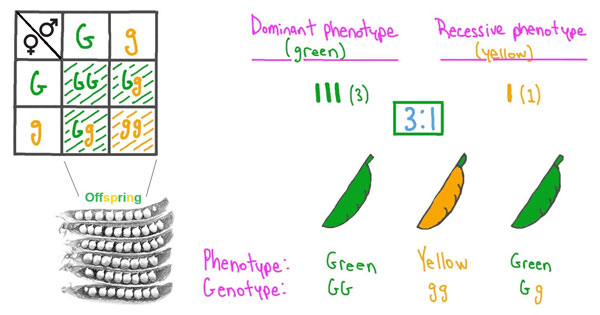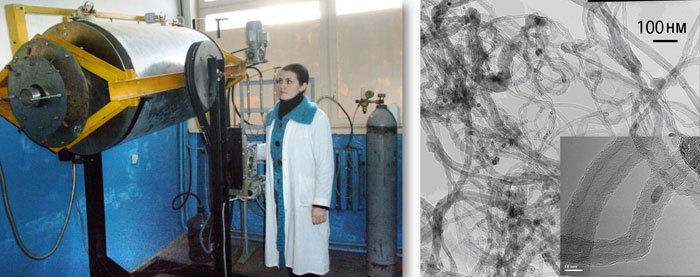Interview with a Soapbox Scientist: Ievgeniia Kovalska
Dr Ievgeniia Kovalska is a Lecturer at the University of Exeter, Engineering Department. Her research focuses on developing more sustainable renewable energy solutions by using extremely thin materials, called nanomaterials. Ievgeniia works across scientific disciplines, making these new materials, investigating their properties and using them in a wide range of applications, from more efficient batteries to wearable sensors that can be employed in healthcare.
To be or not to be (a scientist)
Whenever I think about my scientific journey, it always seems to start at a specific time, in a specific place: I am about 10, at home, sitting next to my mom, Valentyna, in our tiny Khrushchevka-style kitchen. In my mind’s eye, as vividly as then, my attention, and along with it my imagination, are captivated by the scene before my eyes: the A4-size notebook and pieces of paper scattered on the small table; the meticulous handwriting filling the pages; the graphite pencil sketches that lay out what to me seemed like mystical mustached figures. Mom, who is an agronomist, is deeply immersed in her work but notices my questioning look. She turns towards me and with that soothing voice of hers explains that the mystical figures are in fact drawings of a particular type of rye and wheat and their ears, as they are called. The squares and letters next to them instead form a Punnett square diagram which predicts the genotypes of the next breeding experiments. I didn’t fully understand all of it, but I was intrigued. Mom is the first scientist in our family – and back then she was working at the Remeslo Myronivsky Wheat Institute, renowned for its groundbreaking winter wheat varieties like Ukrainka 0246 and Myronivska 808.

A Punnett square diagram for predicting phenotype (colour) and genotype (genes) of the next-generation pea plant.
My father, Alexander, who worked at the same institute as my mother, has played an equally important role in my scientific upbringing. I spent countless hours observing him fixing broken things in the same kitchen and the same tiny dining table, cluttered with motherboards, resistors, and capacitors of various shapes. Whenever I look back, the smell of solder is always filling the air, and a tiny plume of steam rises toward the ceiling. Dad is wearing his glasses and a headband magnifier on top, repairing a neighbour’s TV or radio. He is an electrical engineer by trade but moonlights as the local electrician who can fix everything.
Thanks to them, I grew up in a family where science was a key part of our daily life, in a small town established for advancing agricultural science. On a subconscious level, this environment nurtured my scientific curiosity from a young age. My parents’ unyielding work ethic and unwavering support instilled in me, the determination to pursue my aspirations in the STEM field.

Photo of Myronivska wheat field ready for harvesting (Tsentralne town, Ukraine, my motherland).
My scientific voyage
Though, as a child, I often found myself captivated by the world of science that surrounded me, it was the unique properties of carbon and graphene (about what I learned later) – a material made entirely of carbon atoms, called an allotrope, like diamond or graphite – that truly sparked my scientific journey. Now, graphene, a single-layer two-dimensional material, and post-graphene materials – similar materials made of other atoms, not just carbon – continue to be at the center of my scientific interest and work.
Unknowingly, I boarded my flight to Planet Science by becoming a teacher first. As a young, single mother, of a lovely girl of three (called Ruslana), in 2004, I enrolled for a Master's degree in Biology and Chemistry with Qualified Teacher Status from Dragomanov National Pedagogical University in Kyiv. All I wanted was to finish my studies and embark on a lifelong secure career in high school teaching. During this period, however, I deepened my understanding of carbon chemistry (during Organic Chemistry classes) and met people who inspired me and guided me towards a different career path, one that I hadn’t planned for.
My PhD chapter began in 2006 at the Chuiko Institute of Surface Chemistry of the National Academy of Sciences of Ukraine. The PhD process is incredibly demanding, requiring immense time and effort, and it inevitably becomes a central part of your life. Many a time, I was tempted to drop my crazy endeavour and go back to my teaching career. Having my little Ruslana by my side, however, provided all the strength I needed to overcome my doubts. Though only five years old, my daughter became an important part of this journey. Poor thing, at her tender age, she happily (or so I hoped) spent hours listening to my stories about multiwalled carbon nanotubes and other allotropes of the Carbon family – the topic of my PhD.
My PhD supervisor, Dr Yuriy Sementsov, was also an invaluable support and guidance throughout this journey, playing a protective role in challenging enduring soviet stereotypes about gender roles in the workplace. I am deeply grateful for his mentorship and advocacy.

Photograph of myself next to the reactor for large-scale production (left) of the multiwalled carbon nanotubes (right), which are rolled-up graphene sheets, synthesised by Chemical Vapour Deposition, a technique that uses gases at extremely high temperatures.
After earning my PhD in Chemistry in 2014, I sought research opportunities abroad, driven by a strong desire to expand my knowledge of novel materials. This journey led me to work as a Postdoctoral Researcher at Bilkent University in Ankara, at the University of Exeter, and at the University of Chemistry and Technology in Prague. At each of these institutions, I had the privilege of collaborating with brilliant researchers who played a crucial role in shaping my scientific personality and expertise. Together, we delved into the world of 2D materials, exploring the enormous possibilities of these materials for advancing technologies and contributing to groundbreaking research in this rapidly evolving field.
The start of 2024 marked a crucial milestone in my life: I became a Lecturer in Advanced 2D Energy Materials at the University of Exeter, a title that truly resonates with my passion for the field. What makes my work exciting is the variety of materials I get to explore to push the boundaries of sustainable energy technologies.
One lesson I learned through my scientific journey is that hard challenges are inevitable along the way as inevitable is at times meeting the wrong kind of people, those who always try to put us down or question our worth. But it is only by taking care of our mental health and fostering a strong belief in ourselves that we can reach our goals and fulfil our dreams.
Meetpoint Soapbox Science Exeter
What attracted me to Soapbox Science in the first place was the opportunity to share my passion for science with a broader audience. As an event that breaks down barriers and inspires others, especially women and young girls, to pursue careers in science, Soapbox Science offers a unique platform and friendly atmosphere for direct engagement with families and kids. Through my personal story and passion for what I am doing, I aim to serve as a role model and advocate for underrepresented groups in STEM, making science more accessible and impactful for all. If I could change one thing about the scientific culture right now, it would be to build a more inclusive and supportive environment, where diversity is celebrated and all voices are heard.
Advice to them
Girls, ladies, and women, believe in yourself and your abilities! Do not let self-doubt or gender biases hold you back. Seek out good mentors and allies who will support and champion you along the way. And remember, your unique perspective and contributions are invaluable to the scientific community.
New horizons
Being a scientist is like constantly exploring uncharted territory. Every day, there's something new to learn and discover. In my journey with advanced materials, I am driven by the idea that even small innovations can make a big difference in our world.
Even though the path we choose might be winding and longer than expected, like a train ride from Exeter to London that can take anywhere from 2 to 4 hours depending on the day, what truly matters is embracing and learning from the journey itself. With perseverance and a bit of curiosity, we can overcome the challenges ahead and reach our destination.
Excitement is the summary of my expectations for the day. The excitement of exploring, learning, and making progress together!
